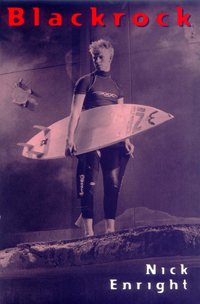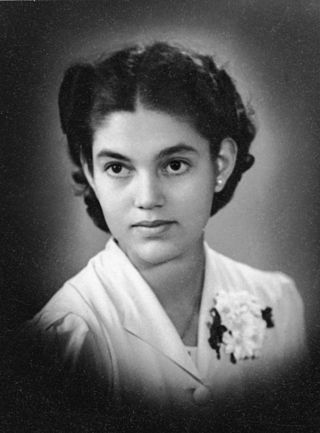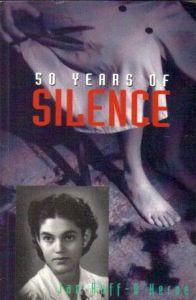Related Research Articles
The Sydney gang rapes were a series of gang rape attacks committed by a group of up to 14 youths led by Bilal Skaf against Australian women and teenage girls, as young as 14, in Sydney, New South Wales, Australia across several days in 2000. The crimes, described as ethnically motivated hate crimes by officials and commentators, were covered extensively by the news media, and prompted the passing of new laws. In 2002, the nine men convicted of the gang rapes were sentenced to a total of more than 240 years in jail. According to court transcripts, Judge Michael Finnane described the rapes as events that "you hear about or read about only in the context of wartime atrocities".

Richard John Sinclair Laws CBE is a retired Australian radio announcer who had a broadcasting career that spanned 71 years. His distinctive voice earned him the nickname Golden Tonsils.

Matthew James Johns is an Australian rugby league media personality, commentator and former professional player. An Australian international and New South Wales State of Origin representative five-eighth, Johns played his club football primarily with the Newcastle Knights, alongside his younger brother, Andrew. Since March 2011, Johns has been a co-host on the Triple M Sydney breakfast show called The Grill Team with Mark Geyer. Since 2012, Johns has been a part of the Fox Sports NRL coverage. He had his own show on Channel 7 for one season in 2010, The Matty Johns Show and since 2013 has hosted a rugby league analysis and light entertainment show on Foxtel airing two nights each week.

Blackrock is a 1997 Australian teen drama thriller film produced by David Elfick and Catherine Knapman, directed by Steven Vidler with the screenplay by Nick Enright. Marking Vidler's directorial debut, the film was adapted from the play of the same name, also written by Enright, which was inspired by the murder of Leigh Leigh. The film stars Laurence Breuls, Simon Lyndon and Linda Cropper, and also features the first credited film performance of Heath Ledger. The film follows Jared (Breuls), a young surfer who witnesses his friends raping a girl. When she is found murdered the next day, Jared is torn between revealing what he saw and protecting his friends.
Roland John Perry OAM is an Australian author and historian. His work includes three works of fiction and more than twenty documentary films. His book Monash: The Outsider Who Won the War was awarded the Fellowship of Australian Writers' Melbourne University Publishing Award in 2004 and described as "a model of the biographer's art."

Cinesound Productions Pty Ltd was an Australian feature film production company. Established in June 1931, Cinesound developed out of a group of companies centred on Greater Union Theatres that covered all facets of the film process, from production to distribution and exhibition. Cinesound Productions established a film studio as a subsidiary of Greater Union Theatres Pty Ltd based on the Hollywood model. The first production was On Our Selection (1932), which was an enormous financial success.

Kenja Communication, or simply Kenja, is an Australian company co-founded in 1982 by Ken Dyers and his partner, Jan Hamilton. The word 'Kenja' is derived from the first letters of their names. There are four Kenja centres, in Sydney, Greater Western Sydney, Melbourne and Canberra. Kenja Communication runs classes, workshops and one-to-one sessions, as well as events and activities at different venues around Australia. It has gained public attention through court trials involving various members of the group, leader Ken Dyers' suicide following allegations of child sexual abuse, and the group's alleged involvement in the Cornelia Rau case.

Blackrock is a play by Australian playwright Nick Enright that was first performed in 1995. It was adapted from a 1992 play by Enright, A Property of the Clan, which was inspired by the murder of Leigh Leigh in Stockton, Australia in 1989. The plays were both well received critically but attracted criticism from both Leigh's family and the media because of the fictionalisation of an actual murder. Despite repeated statements from Enright that the plays were a work of fiction, they have both often been considered by viewers to be a factual account. A Property of the Clan was shortlisted for a New South Wales Premier's Literary Award in 1993, and Blackrock won the AWGIE Award for Best Play in 1996. Blackrock was developed into a feature film of the same name in 1997.
The Mount Rennie rape case is the only gang rape in Sydney, Australia during the 1880s that led to a full conviction of the participants involved in the crime—young larrikins of the "Waterloo Push". The attack is sometimes referred to as the "Mount Rennie Outrage" or the "Waterloo Outrage". The crime was a pivotal point in New South Wales history, coming after a history of failure of other gang-rape trials in that time period.
Hugh John Massingberd, originally Hugh John Montgomery and known from 1963 to 1992 as Hugh Montgomery-Massingberd, was an English journalist and genealogist. He was chief editor of Burke's Peerage/Burke's Landed Gentry from 1971 to 1983.
The Tender Trap was a cabaret nightclub that ran in Sydney, Australia from December 1994 to January 2000. It was one of the most successful Sydney clubs of the 1990s. The Tender Trap club pre-dated the mid 90s lounge culture phenomenon, but as the phenomenon grew, so too did the popularity of the club.

Series 4, Episode 8 is the final episode of the fourth series of the British comedy-drama television series Cold Feet. It was written by Mike Bullen, directed by Ciaran Donnelly, and was first broadcast on the ITV network on 10 December 2001. The plot follows on directly from the previous episode, as Adam and Rachel, and Karen and David travel to Sydney, Australia for Pete and Jo's impromptu wedding. Adam is sceptical that Pete is truly in love with Jo, and Jo's rich father Rod suspects that Pete is only marrying her to get access to his money. Under pressure from Rod, Pete gets cold feet and he and Jo call off the wedding. The couple soon reconcile and marry with Rod's blessing. Meanwhile, David discovers that Karen has been having an affair with her colleague Mark and ends their marriage, and Rachel gives birth prematurely in a Sydney hospital.
Martin Fabinyi is an Australian film and television producer and director and music label owner and has written books on the local rock music scene. He was the chief executive officer of Mushroom Pictures from its formation in 1993 to 2009. His film projects include the features Chopper (2000), Gettin' Square (2003), Wolf Creek (2005) and Macbeth (2006). He is currently Head of Feature Films and Documentaries at Beyond Entertainment.

Jeanne Alida "Jan" Ruff-O'Herne was a Dutch Australian of Irish ancestry and human rights activist known for campaigning internationally against war rape. During World War II, Ruff-O'Herne was forced into sexual slavery by the Imperial Japanese Army. After remaining silent for fifty years, Ruff-O'Herne spoke out publicly from the 1990s until her death to demand a formal apology from the Japanese government and to highlight the plight of other "comfort women". On her death, the South Australian Attorney-General noted: "her story of survival is a tribute to her strength and courage, and she will be sorely missed not only here in South Australia, but around the world."

Fifty Years of Silence: The Extraordinary Memoir of a War Rape Survivor is a personal memoir written by Jan Ruff O'Herne, a "comfort woman" who was forced into sexual slavery by the Imperial Japanese Army.

The Red Pill is a 2016 American documentary film directed by Cassie Jaye. The film explores the men's rights movement, as Jaye spends a year filming the leaders and followers within the movement. It premiered on October 7, 2016 in New York City, followed by several other one-time screenings internationally. It was released on DVD and Blu-ray in 2017 by Gravitas Ventures.

Olga Agnew was an Australian child actress, who starred in multiple plays and one movie from 1912 to 1920.

The Australian Centre for Photography (ACP) was a not-for-profit photography gallery in Darlinghurst, Sydney, Australia that was established in 1973 and which also provided part-time courses and community programs.
This article presents a list of the historical events and publications of Australian literature during 1994.
References
- ↑ Greenwood, Helen (14 July 1996), "Horror of war rape exposed", The Sydney Morning Herald
- ↑ Day-Lewis, Sean (30 July 1995), "Witness: Fifty Years Of Silence", The Sunday Telegraph
- ↑ Massingberd, Martin (2 August 1995), "Lessons in history from flickering footage", The Daily Telegraph
- ↑ Hutak, Michael (15 July 1996), "An end to barbarism", The Sydney Morning Herald
- ↑ Oliver, Robin (26 September 1994), "Forgotten victims", The Sydney Morning Herald
- ↑ French, Lisa; Poole, Mark (2009). Shining a Light: 50 Years of the Australian Film Institute. Australian Teachers of Media. p. 257. ISBN 978-1-876467-20-3.